
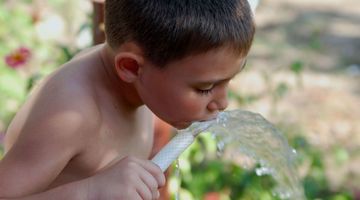
The factors that affect water quality include where the water comes from, what is in the environment in the collection area and how it is treated. Rights: Plamen Petrov, licensed through 123RF ...
READ MORE
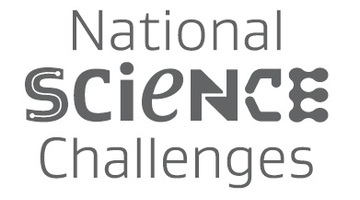
As New Zealanders looking to the future, we are faced with many opportunities – and challenges. These include improving the health of all our people, advancing our economic growth, protecting our ...
READ MORE
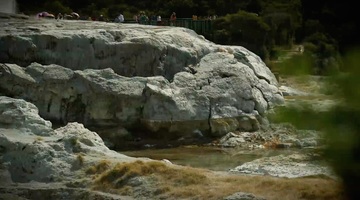
The haukāinga (local residents) of the Rotorua area – Te Arawa, Tūhourangi and Ngāti Wāhiao – have lived in this highly active geothermal region for generations. The unique geology of the area ...
READ MORE
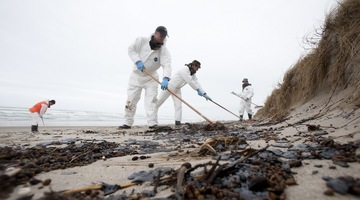
In this activity, students consider short-term and long-term responses to an environmental disaster such as the Rena. By the end of this activity, students should be able to: describe what might ...
READ MORE

In this activity, students research the effect of common pollutants on our waterways and hold a mock trial to determine the worst pollutant in the country. By the end of this activity, students ...
READ MORE

In this activity, students investigate the issues surrounding water in their local area and relate this knowledge to water issues in other countries. By the end of this activity, students should ...
READ MORE

Be part of a worldwide movement and use Global Earth Challenge to submit or classify photos to help our planet’s environment and human health. Global Earth Challenge is a citizen science campaign ...
READ MORE
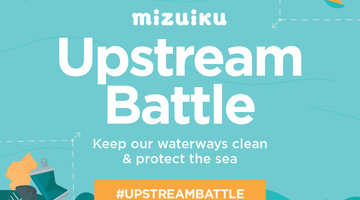
Did you know that 80% of marine litter globally starts life on land? Mizuiku Upstream Battle is a citizen science programme run by Keep New Zealand Beautiful. It aims to get volunteers across ...
READ MORE

Globe at Night is an international citizen science campaign to raise public awareness of the impact of light pollution by inviting citizen scientists to measure and submit their night sky ...
READ MORE

Freshwater is defined as inland water – springs, streams, rivers, lakes and wetlands. It includes water that is stored in glaciers and under the ground within soil and in aquifers. Freshwater is ...
READ MORE
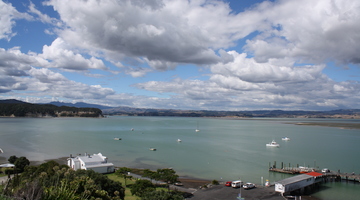
With 75% of New Zealanders living within 10 km of the coast, many students will be familiar with estuaries. In scientific terms, estuaries are the interface between the land and the sea – the ...
READ MORE

In this recorded professional learning session, Greta Dromgool and guest Alex Daniel from the Waikato Regional Council take a hands-on look at fresh water monitoring. Exploring our urban and ...
READ MORE
ESR scientist Dr Chris Nokes discusses the effect sediment can have on microorganisms in the water. It is possible that microorganisms survive longer in sediment than they do in water, and when ...
READ MORE
ESR scientist Dr Chris Nokes describes why it is important that we manage our water resource so that disease-causing organisms are eliminated from our drinking and recreational water. In New ...
READ MORE
ESR scientist Dr Chris Nokes describes how adding a flocculant coagulant to muddy water causes the mud particles to group together to form larger heavier clumps that can then be filtered or ...
READ MORE
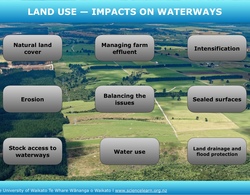
Discover some of the issues involving land use and water quality. Click on the labels for more information. Select here to view the full transcript and copyright information.
READ MORE
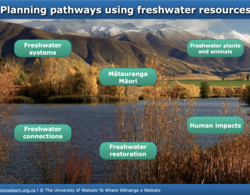
This interactive groups Hub resources into key science and mātauranga Māori concepts. Select here to view further information, the full transcript (with PDF download option) and copyright ...
READ MORE

Use this interactive graphic organiser to explore your personal views and values relating to water. Place each statement card where you feel it belongs. There are no right or wrong answers.
READ MORE